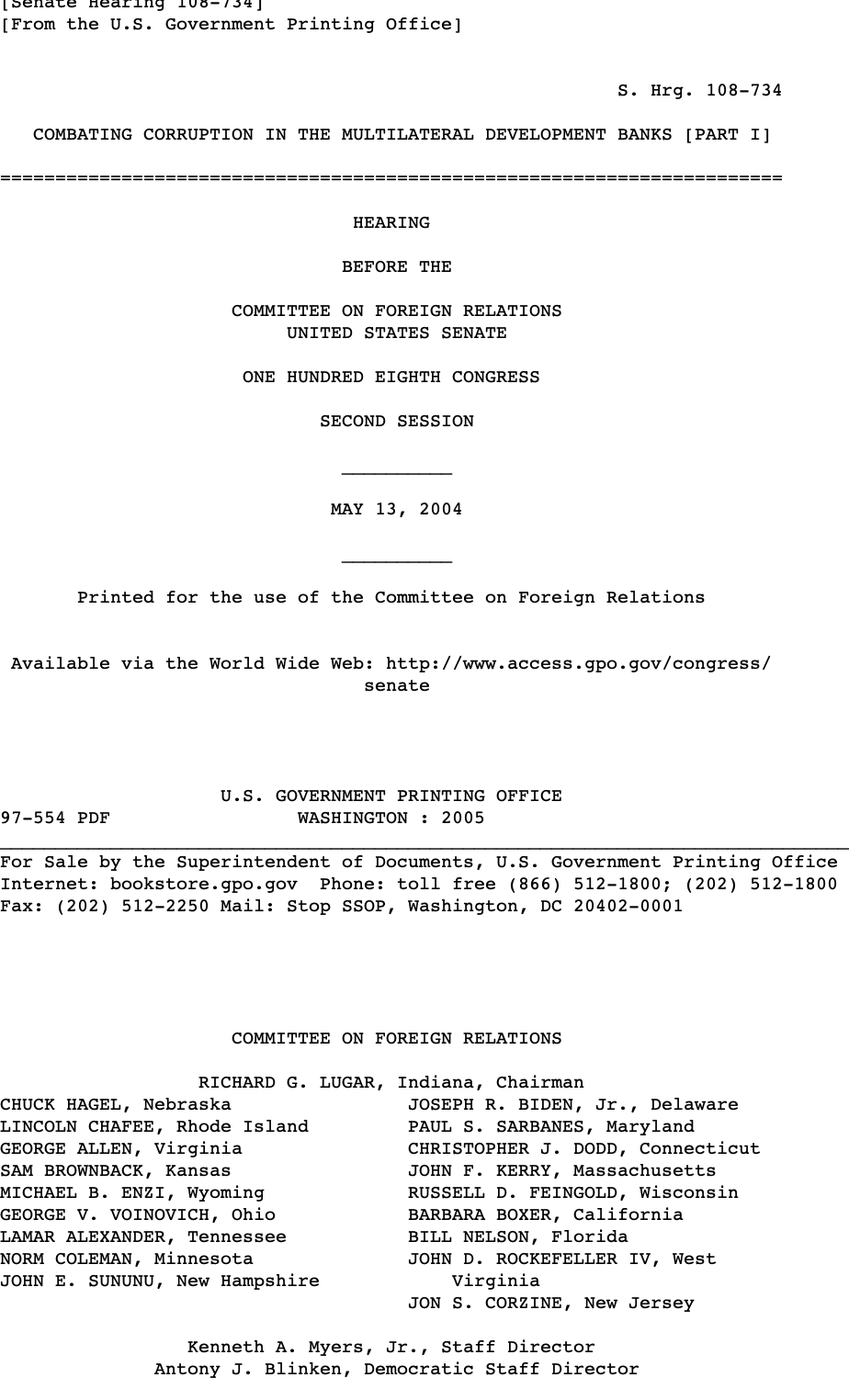- U.S. Government Printing Office, S. Hrg. 108-734, COMBATING CORRUPTION IN THE MULTILATERAL DEVELOPMENT BANKS [PART I], HEARING BEFORE THE COMMITTEE ON FOREIGN RELATIONS, UNITED STATES SENATE, ONE HUNDRED EIGHTH CONGRESS, SECOND SESSION, MAY 13, 2004
- May 13, 2004
- pp. 79-86
The "culture of loan approval" and "pressure to lend" that have been
documented in the World Bank and other MDBs for more than a decade has
often meant that policies designed to mitigate adverse environmental
and social impacts of MDB lending are not implemented. Our research has
led us to World Bank internal documents that state clearly that the
culture of loan approval has also undermined the implementation of
basic financial auditing and reporting requirements. These findings
themselves are rather astounding for any public international financial
institution, let alone one like the World Bank, which proclaims itself
to be a leader. Nevertheless, the excerpts and conclusions from
internal World Bank documents speak for themselves.We believe that the same measures that would address the institutional problems relating to corruption in the MDBs would also go
a long way towards improving overall project quality with respect to
environmental and social impacts. Our major concern is that the statement of the U.S. Executive Director Carole Brookins and the announced anti-corruption measures of
the World Bank do not credibly address the most serious, endemic
problem embedded in MDB lending operations; namely, the systematic,
across-the-board diversion of MDB lending by whole governments or
government ministries in the Bank's borrowing countries.World Bank anti-corruption actions have focused on specific procurement, bribery and kickback abuses, as well as selected general governance programs, rather than on the much larger and more serious public sector, country-wide level of corruption of Bank loans. This latter problem is at the root, however,
of by far the largest portion of corruption in MDB lending.
Read full article (LINK)



